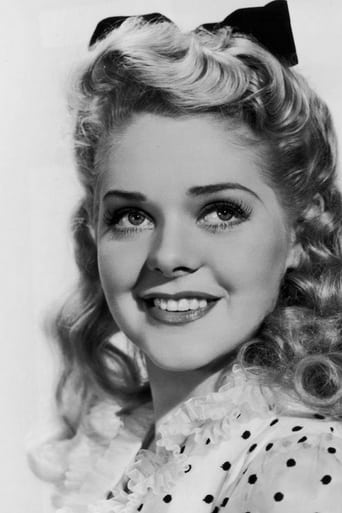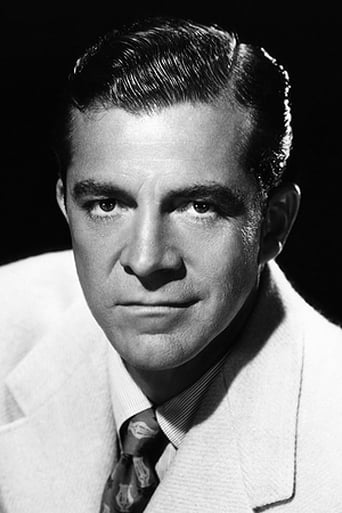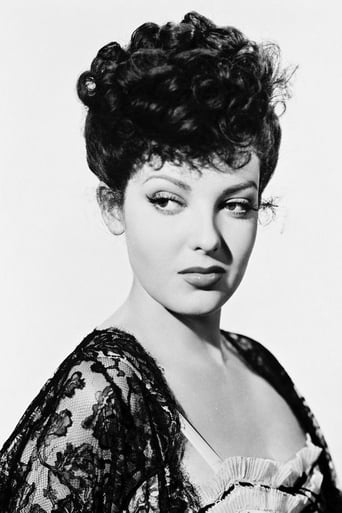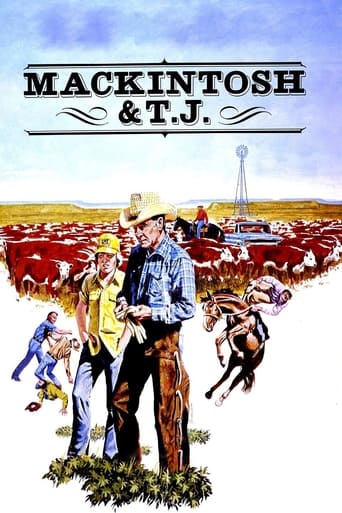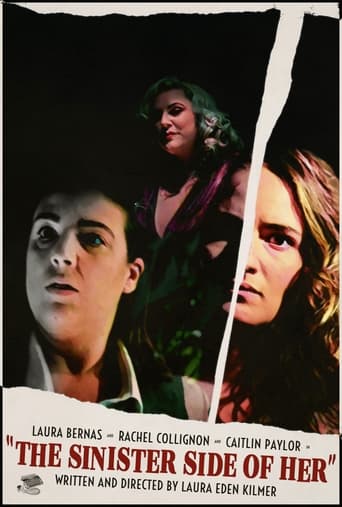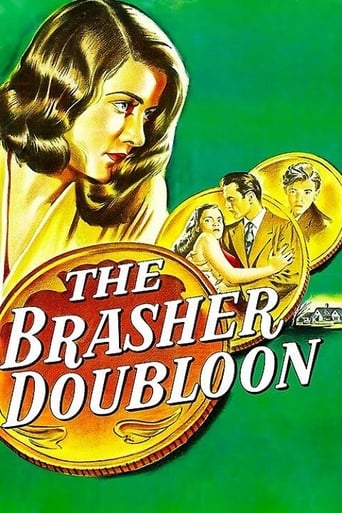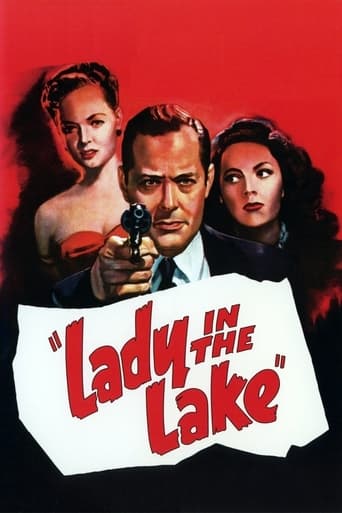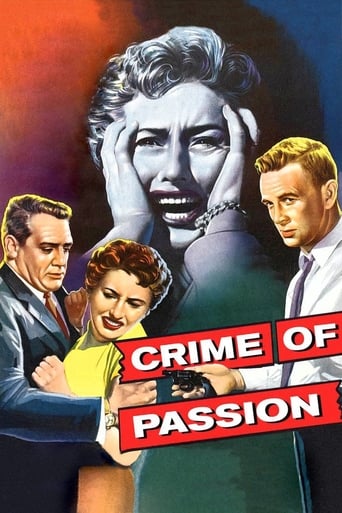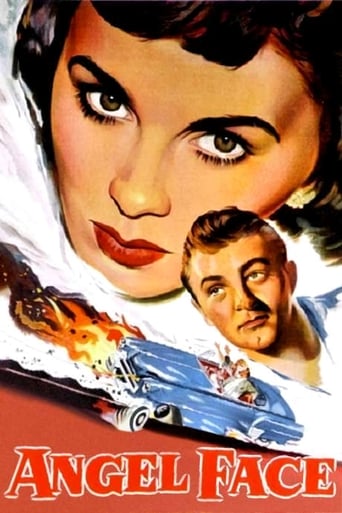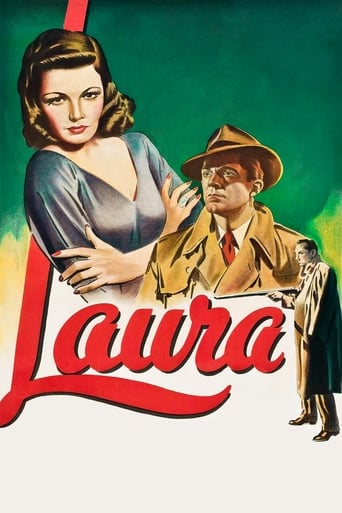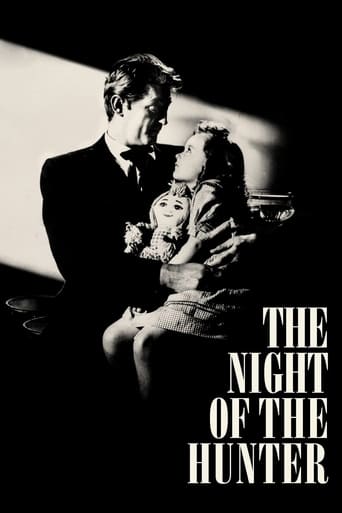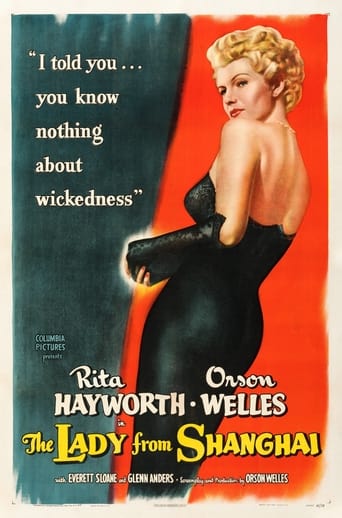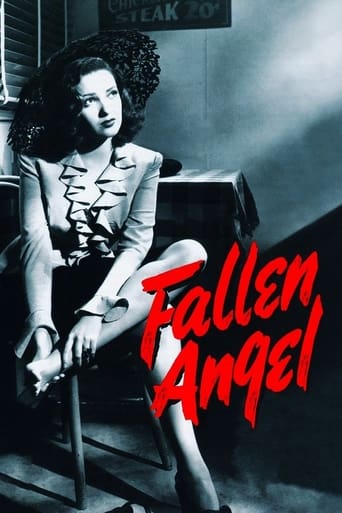
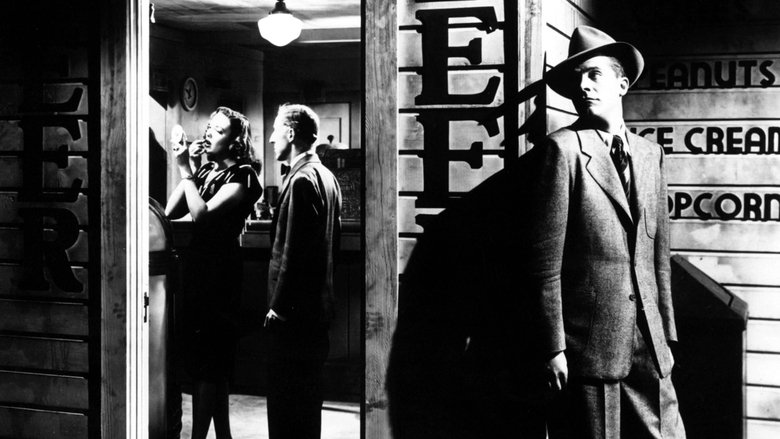
Fallen Angel (1945)
An unemployed drifter, Eric Stanton wanders into a small California town and begins hanging around the local diner. While Eric falls for the lovely waitress Stella, he also begins romancing a quiet and well-to-do woman named June Mills. Since Stella isn't interested in Eric unless he has money, the lovelorn guy comes up with a scheme to win her over, and it involves June. Before long, murder works its way into this passionate love triangle.
Watch Trailer
Cast


Similar titles
Reviews
After "Laura" Otto Preminger took a step down to a slightly more shabby intrigue and environment. The joint in which Dana Andrews lands after his fall is not a place anyone would visit willingly and especially not for the sake of Linda Darnell. Her being the main attraction there for which all men become regulars is the worst possible recommendation for a common road house.Dana Andrews is the fallen angel who is thrown off a bus and lands in this miserable place, where he meets a sinister veteran police officer with some scarred experience, a pathetic owner and Linda Darnell. She hooks him, he goes mad about her and promises her anything, even venturing on criminal plans, finding two sisters with some fortune he could use, one of them being Alice Faye, a church organist, who falls in love with him to her sister's grest dismay. Her alarm is justified indeed. There it starts.It's a great story and perfect intrigue expertly handled, but what then is wrong here? There is only one flaw: Linda Darnell. She is terribly miscast and least of all convincing. How could any man fall for such a mean presumptuos creature, a shallow hooker without soul, and yet everyone seems to do just that, hopelessly and desperately.Dana Andrews' doubtful character is the main thriller of the film. No one knows anything about him, the audience least of all, he is a loser and maybe a criminal one, you can suspect all the worst about him, as Alice Faye's non-nonsense sister has every reason to do, and only gradually his real character comes into light, mainly in the great hotel scene in San Francisco, an even shabbier place than the road joint, clearly pointing out the direction of Hitchcock's "Vertigo" 14 years later. That long scene makes the film a masterpiece in spite of Linda Darnell.
Penniless con-man Eric Stanton (Dana Andrews) gets thrown off the bus in the seaside town of Walton between L.A. and San Francisco. He is taken with sultry waitress Stella (Linda Darnell). He joins forces with spiritualist con-men Professor Madley and his assistant Joe Ellis. They have been trying to scam the town in spite of the powerful disbelieving spinster Clara Mills (Anne Revere) and her younger sister June (Alice Faye). The Mills lost their father and Madley pretends to have a public seance to contact the late Mr. Mills. Eric needs money to marry Stella and decides to get it out of June in a quickie marriage. He is terribly jealous of Stella's flirtations with other men.This is a noir directed by Otto Preminger coming a year after Laura. The dialog and performances are hard-boiled. The movie is pulpy goodness. The character June would work better as a young innocent. Alice Faye is playing a spinster and it's hard to see her falling for his simple self-assured flirtations. She has more worldliness than the role seems to suggest. Apparently, she didn't like the movie and left Hollywood for awhile over it. This has many of the trappings of good noir. Perminger's early prowess is on display.
After collaborating on one of the greatest films ever made(Laura (1944)), director Otto Preminger and star Dana Andrews this time join forces to make a lesser but nonetheless beautifully photographed film noir titled FALLEN ANGEL. Andrews is on his way to San Francisco, broke, hard-bitten, angry, and tired, from New York where he squandered $8,000 after selling a successful publicity agency(he's good at charming customers into buying whatever he's selling), wandering into a little California town known as Watkins where he's smitten with a no-good beauty named Stella, the kind of chick who hypnotizes all the men who happen to enter her orbit. Andrews is so desperate to have her as his girl, he'll work his spell over a local girl(Alice Faye, receiving top billing), the daughter of a deceased former Mayor, revered by the citizens of Watkins. Faye has money: Darnell wants to have a home and plenty of dough, but when Andrews informs her that he had to marry Faye in order to secure the money she has in a San Francisco bank vault box, their plan to run away together hits the skids. Darnell doesn't want a "married man" and eyes a music box and slot machine salesman (Bruce Cabot), raising the ire of Andrews who has devoted all of his recent activities to pursuing her hand. When later that night Darnell is found murdered, a blow to the temple the method of execution, Andrews is the suspect because he met her at the diner earlier that night, producing the heated incident which ended their relationship for good.Charles Bickford is a retired police investigator who came to Watkins "to relax" from New York, asked by the Police Chief to help him find Darnell's murderer. Bickford's interrogation methods (as we see when he questions Cabot, wearing a white glove to remove potential bruising) are questionable, to say the least, and Andrews gets out of dodge, fearing a frame-up, with Faye insisting on coming to San Francisco with him. Anne Revere is the older sister of Faye, herself emotionally scarred from losing a fortune of her daddy's money to a louse who fleeced her. Revere simply wants what's best for her sister and feels Andrews would commit the same grievous acts perpetrated on her. Shot in stunning, stark B&W by cinematographer Joseph LaShelle, FALLEN ANGEL is blessed with a gorgeous look, and Andrews was trustworthy when it came to performing in the film noir genre. Preminger's film takes its time, allowing the story to unfold, but I'm not quite sold that Faye would adhesively attach to Andrews who never shows her the kind of affection she deserves—that is until the very end when she loyally remains by his side despite angered outbursts on his behalf because of a situation he finds himself in, the chief suspect in a murder. Darnell is perfectly cast as the object of lust all the guys covet and adore. Good part for Percy Kilbride as the old diner owner who practically worships Darnell, so incredibly happy that she continues to work for him(she actually lifts money from his cash register to pocket for herself, but I imagine he wouldn't get rid of her even if he caught her). Darnell's shallow, greedy, a hollow human being whose only attributes are her sultry looks and sexy features and curves. John Carradine has a hilarious cameo as a charlatan called Professor Madley, who claims to commune with the dead—Andrews sees an opportunity with this character to score some quick bread, able to convince Faye to come to a performance, in turn bringing the entire community to see Carradine talk with lost loved ones, preferably their dead mayor.
Otto Preminger and star Dana Andrews made this film a year after their highly acclaimed "Laura", with leading ladies Linda Darnell and Alice Faye (top billed above Darnell and Andrews). As with "Laura", this is a mystery film and fits solidly into the genre of mystery, and not suspense as many have claimed. This is just the first of many misunderstandings in my opinion about the film that stem from genre concerns.Although in a sense it's intriguing, the first thing that limits this film is the seemingly random and even arguably contrived nature of the main character's actions. Eric (Andrews) arrives in town short of bus fare to San Francisco, and manages to involve himself with a sham-mystic (John Carradine) and a pair of young ladies with a small inherited fortune (Faye and Anne Revere as her jealous sister), all as a sidelight to falling in love with sultry barmaid Stella (Darnell). He promises Stella that he can get enough money to marry her and buy her a house, seemingly by marrying June (Faye) and stealing her money from the safe deposit box in SF.Given this scenario, it's extremely hard for the film-makers to twist our sympathies so that they eventually favor all 3 of the principals. First of all, we're supposed to believe that June has some deep, truly meaningful emotional commitment to Eric even though they've only known each other for a week and Eric was busted trying to steal her money and could possibly be a killer. It's the old standard "women's picture" trope about the faithful wife, draw to a truly ridiculous extreme that would make most modern viewers cringe.Then we have Eric, a truly weird guy. Dana Andrews was not the best actor to play this character; he is too much of a static presence to play such a dynamic speaker and personality. It calls for the kind of grace and glib that Tyrone Power showed in "Nightmare Alley" or Glenn Ford in "3:10 to Yuma." It's a little bit hard to believe that Dana Andrews of all people has some kind of preternatural charm.But then there's Darnell, cast as a good girl who bears every distinguishing mark and trait of a very bad girl. She's very sexy in this movie and the dance-hall scenes and beach scenes are perhaps some of the steamiest of the 1940s. However I was surprised so many reviewers here singled her out as a bad girl or a "femme fatale." They must be viewing the film through the context of the so-called "film noir" genre as opposed to the mystery genre which this film is actually a part of. If you take time to really re-construct the story, she is a complete innocent (which, in turn, justifies Eric's "obsession" with her as simply a romantic emotion). It's clear she has a prior relationship of some kind with the sadistic detective Judd (Charles Bickford", who we find out at the conclusion was the killer, motivated by jealousy over Eric and another suitor (Bruce Cabot). Instead of a woman motivated to manipulate all 3 men for money, it becomes easy to see that she was so terrified by Judd's behavior that she made a desperate plea to both Eric and Cabot's character in the hopes that they could rescue her from the psycho-stalker police officer. How so many people can still see her as a "femme fatale" after all the facts are on the table is sort of beyond me, but I suppose it's part of the convoluted and unreal nature of this narrative to begin with.The film is far from a total success but just as far from a total bore. The scenes with Darnell and Andrews are delicious, and the weird asexual stalemate between Faye and Andrews is almost as interesting although somewhat too sincere. There's a wince-inducing scene where they lounge on the beach (Andrews: "Every night could be like this: on the beach, eating hot dogs....") and then the strange aftermath of Stella's death with June's disturbing reaction (she insists she knows he can't be the killer, although she's only known him for a week during which he tried to steal her life's savings). Preminger's excellent direction makes this rather predictable and improbable murder a very enjoyable viewing experience.


